Not only is organic fertilizer better for the environment, but it’s actually better for your plants! Avoid fertilizer burn and help your plants get all the nutrients they need by making your own organic fertilizer blends and teas. I’ll show you everything you need to know.
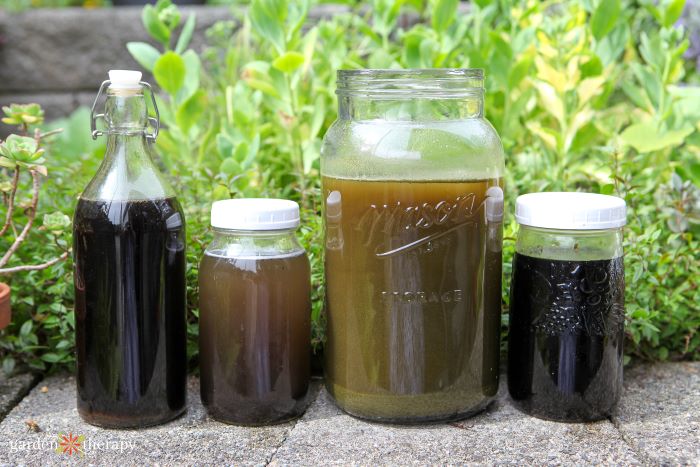
Very rarely do I use fertilizer in my home. I’m constantly working on my soil, adding in natural amendments like compost or natural leaf mulch, so I don’t need to add anything specific to make my plants happy.
Never ever do I use synthetic fertilizers—and I’ll explain why below. But I do like to include natural fertilizers on rare occasions when I think a specific plant may need a boost, or I want to ensure my vegetable garden is packed with nutrients.
Fertilizers are especially important for container plants, as potting soil often lacks the goodness that comes from the good bacteria, microorganisms, and organic matter you’ll naturally find in your garden beds.
If you’re fertilizing this spring, I highly encourage you to reach for organic fertilizers. And don’t you worry, I’ll tell you everything you need to know.
Let’s dive in!
But First! Garden Alchemy
Many of the ideas below are just scratching the surface on organic fertilizers. My book, Garden Alchemy, dedicates a whole chapter on how you can make your own fertilizer blends from scratch, all the necessary ingredients, and a few recipes you can make at home.
In addition to fertilizers, I also dive deep into the many ways to make compost, soil blends, and mulches. It’s a book full of concoctions for the DIY and organic gardener, and many use it as their gardening bible!
You can find more information on where to order it here.
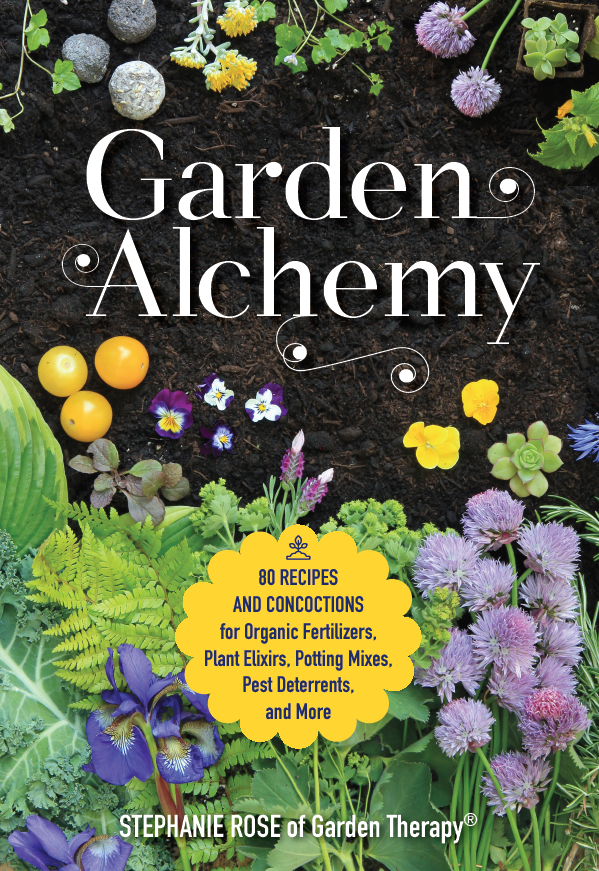

Natural vs. Synthetic Fertilizers
Natural fertilizers are derived from minerals, plants, and animal products while synthetic fertilizers are synthesized chemicals of nutrients. Plants will use both natural and synthetic fertilizers indiscriminately, but they function differently.
Synthetic fertilizer molecules are made to be readily available to plants, and therefore, can be hard to regulate. It’s easy to overapply synthetic fertilizer and cause plants to take up too much nutrition too quickly, causing fertilizer burn.
Additionally, leftover nutrients from synthetic fertilizers are washed away through the groundwater and can be a detriment to the ecological health of the surrounding areas and waterways.
Natural fertilizers are more forgiving because they’re often not as readily available for plants. Soil wildlife, such as bacteria, fungi, and insects, break down the organic matter into plant-available forms.
This supports the soil’s living biome, regulates the speed at which nutrients are available, and encourages the plant to grow stable roots and expand the area from which it collects nutrients. Fertilizers from natural sources are a wonderful way to support plant growth while protecting soil life.
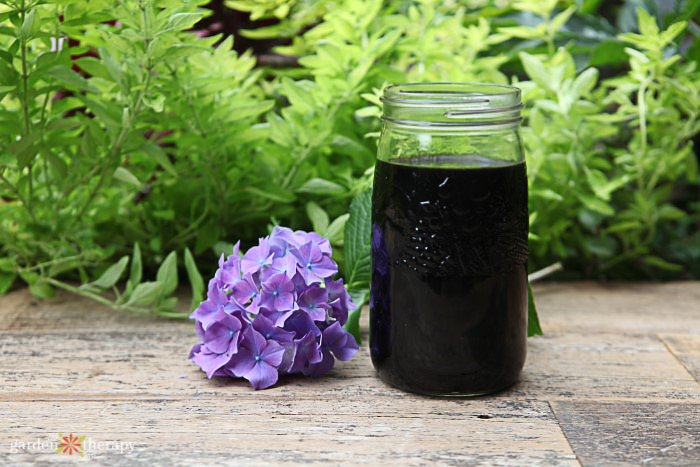

While science and studies say that synthetic fertilizer is safe, they’re not the same. I always think about echinacea. When used as a wild plant to boost immunity, it was extremely effective.
So pharmaceutical companies extracted it, studied it, and then made capsules to boost your immunity. But it’s not the same as herbal medicine and taking echinacea directly.
There are constituents in the plant that help activate these properties—a missing factor the pills won’t give. When we extract from the natural world and replicate it into a synthetic, it doesn’t have the same effect. We won’t truly understand fully how it works in nature.
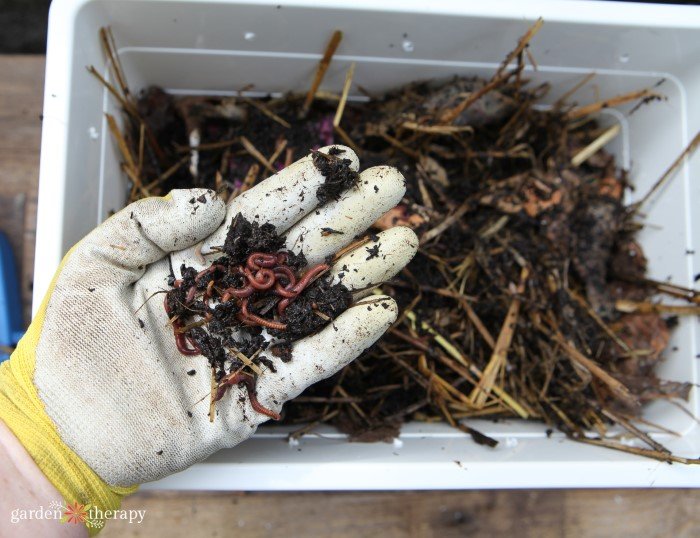

What Are Some Organic Fertilizers I Can Use?
There are many different organic fertilizers you can add to your garden. Some are liquid, and some are granular. They may provide primary, secondary, or micronutrients. You can create your own custom mixes depending on what’s available and what nutrients you’re after for your plants.
Here are some of the most popular organic fertilizers:
- Compost
- Lime
- Rock phosphate
- Mineral rock dust
- Greensand
- Bone meal
- Blood meal
- Alfalfa meal
- Kelp meal
- Wood ash
- Biochar
- Oyster shell flour
- Worm castings
- Mycorrhizae
- Animal manures
- Mushroom manure
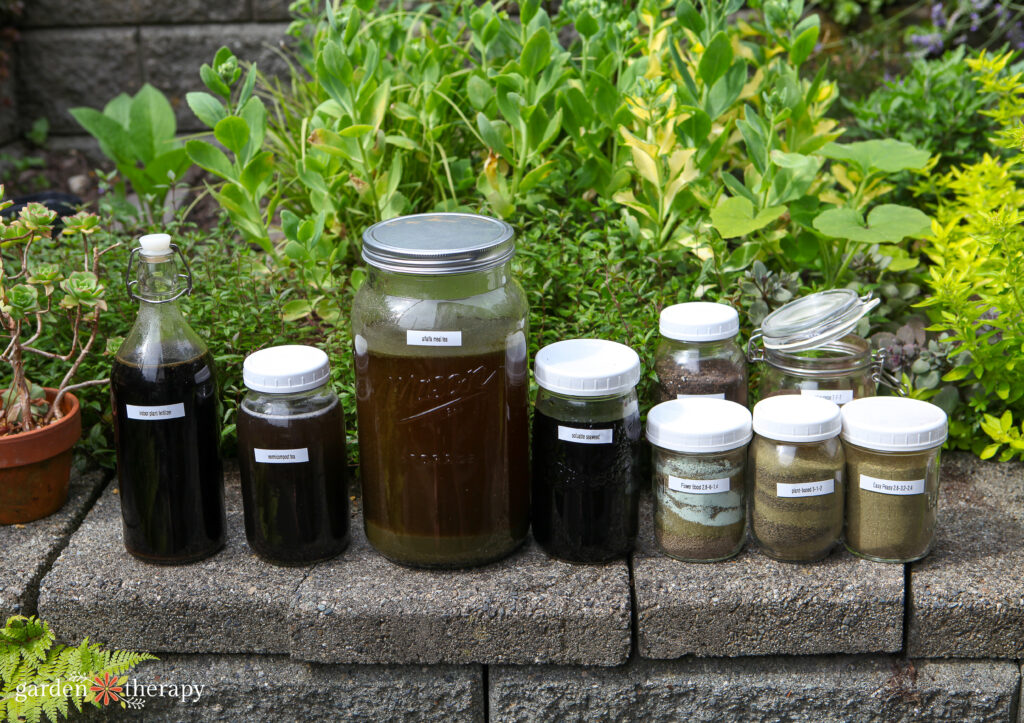

Granular Natural Fertilizer Blending
Many natural fertilizers are sold in granular form. The packaging will list its N-P-K analysis (nitrogen, phosphorus, and potassium) which are primary nutrients for plants. It may also list secondary nutrients and micronutrients.
Granular natural fertilizers are easy to use, forgiving to blend, and release nutrients slowly in the soil. Even better, the dry granules can be mixed together to create fertilizer blends to best support the types of plants you’re growing.
Here is my granular natural fertilizer recipe I use for all purpose (7-7-7):
- 3 parts blood meal
- 3 parts bone meal
- 1 part potassium sulfate
To add in granular fertilizer, mix it into the soil before planting or top dress it with new soil. Apply it in early spring, ideally before planting.
More granular recipe blends can be found in Garden Alchemy.
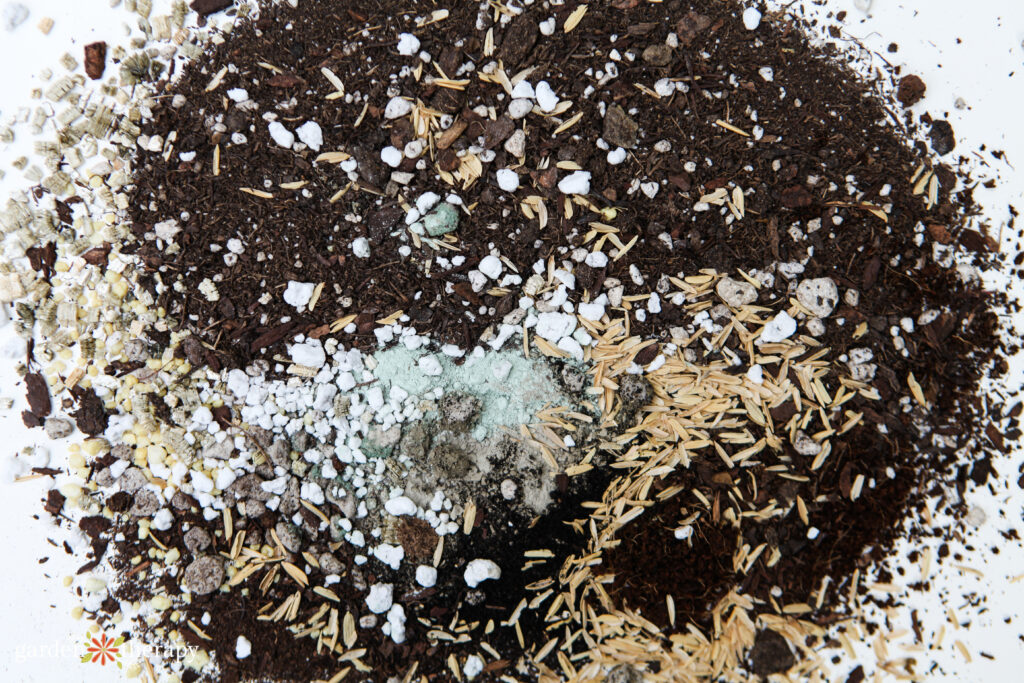

Garden Teas and Foliar Sprays
Garden teas are home-brewed liquid fertilizer preparations that extract soluble nutrients to be spread back into the garden through the soil or through direct application to a plant’s leaves.
Liquid fertilizers can be used as a soil drench applied to the soil when watering or as a foliar spray. Garden teas and foliar sprays should be used with caution and should be highly diluted to avoid injuring plants.
I include a few different garden tea recipes in Garden Alchemy that you can check out. I also have a few recipes online:
Organic Fertilizer FAQ
Many people see sick plants and use fertilizer as if it were medicine in hopes of making it better again. Plants can be sick for many reasons, but if you’re adding organic matter and supporting healthy soil, then the nutrients in the soil likely aren’t the culprit. Use this guide to find the source of why your plant is unhappy.
Fertilizer burn occurs when the plant takes up too much nutrition too quickly, usually from synthetic fertilizers. It usually looks like yellow or brown leaves that have curled or died. This is why it’s important not to overapply fertilizer.
Fertilizer burn can be avoided by using organic fertilizers since the nutrients dissolve and release more slowly.
Some describe Epsom salt as a miracle fertilizer and plant disease cure. Essentially, Epsom salts are magnesium sulfate. While magnesium and sulfur are secondary nutrients essential for plant health, they’re rarely deficient in the home garden, and Epsom salt won’t help your plants much. You can find out more on Epsom salts in the garden in this post.
Make Your Soil Even Better
A city girl who learned to garden and it changed everything. Author, artist, Master Gardener. Better living through plants.

